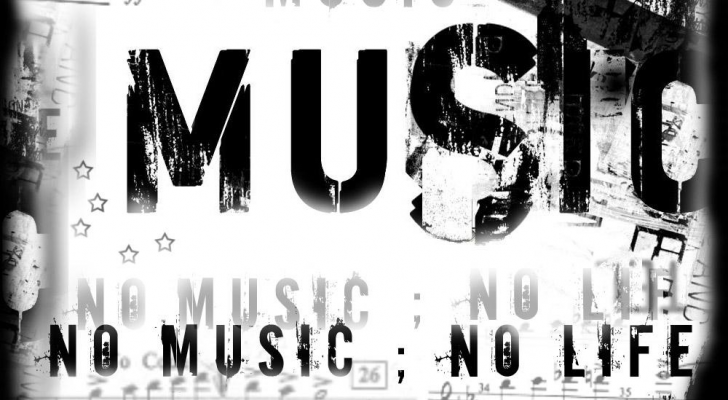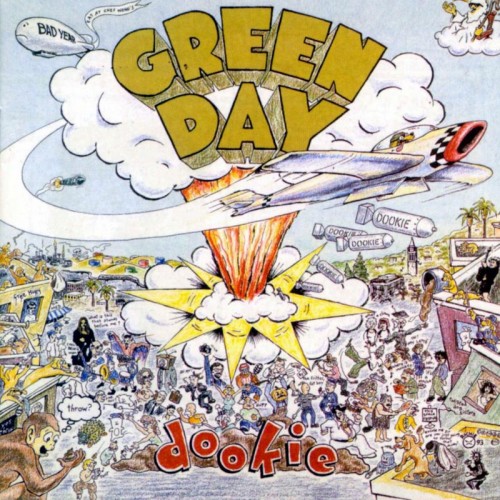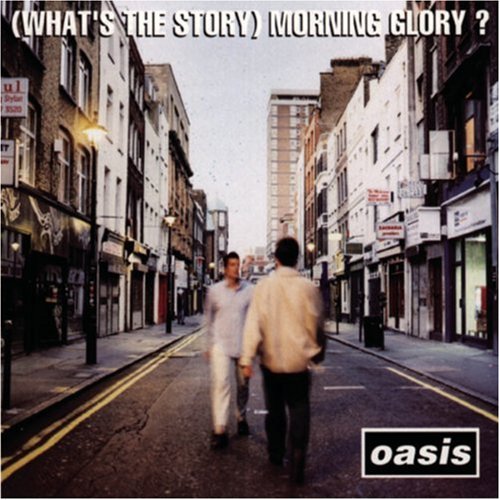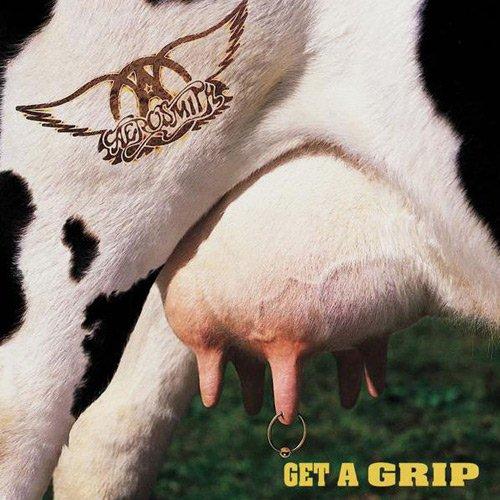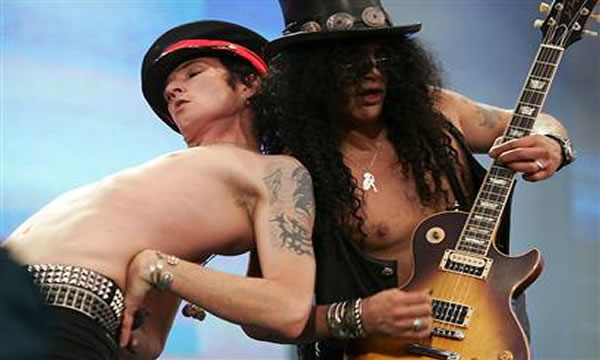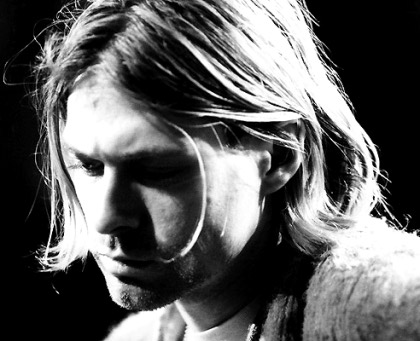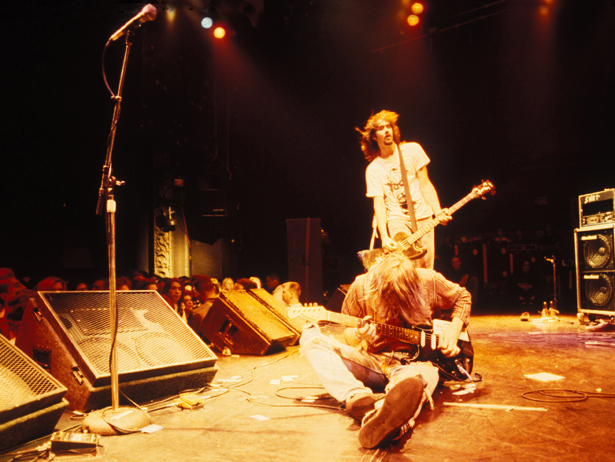I can fearlessly proclaim that 1995 was the year that music had the greatest impact on my self-awareness as a developing adult. A particular musical movement began to arise in 94/95 that struck me like a thief in the night. It was a movement that established my musical tastes, and forever changed my musical appreciation. As a result, this era of the 90s and all it embodied continue to resonate deep within my soul. This was the time of BritPop.
Up until that fateful December afternoon of 95 when I arrived home from school and first witnessed Oasis’ ‘Wonderwall’ video, I had been all over the place with my musical tastes. I liked music from all genres, but nothing ever really stood out as something that would define me as an individual. I was still a huge supporter of Green Day*, but it was Oasis that got me to that next level**. I became passionately enthralled with them and every other band that emerged during this short period of time (like Blur, Elastica, Pulp, and Radiohead).
I have always been obsessed with British culture. From football and fashion to music and atmosphere, I have always been intrigued with the British lifestyle***. The music from this era took a hold of me, and the only reason I can think of as to why is because I was at my most mentally susceptible. Subconsciously, my mind and soul were seeking out possible solutions for my identity crisis (or lack thereof). Remember, for the very first time in my life, I was discovering who I was as an individual. I was setting out on my own and attempting to construct a distinct, identifiable persona. As a result, I was now beginning to confront issues, choices, and pressures I never would have imagined encountering. So basically, in my own nuanced way, I was finding myself through growth and adaptation to the surrounding world. And the BritPop movement**** became the soundtrack to my life at this crucial stage of my existence.
I’m pretty confident that THIS is the reason why 90s BritPop continues to hold a special place in my heart. I look at this and begin to comprehend music a little bit more. In my estimation, no matter how god-awful the music is, the movement that existed during your high school years will always be your favourite era of music. This is why your parents always seem to love the music of the 60s, 70s or 80s (depending on what time period they grew up in). It existed as they grew into adulthood. It was the soundtrack to THEIR lives. They look at 90s music and consider it trash because it doesn’t resonate with them as it does us. When I look at some of the music of today, I write it off as horrifically shallow. But for the teenagers currently intersecting with adult life, this is the soundtrack to THEIR lives. The present era of music will forever remain special in their hearts, and when they hear popular music in ten to fifteen years, they will simply write it off as forgettable because of its inability to capture the essence of their favourite era of music. This reality will forever be a continuously, repeating pattern.
For the next three years of high school, music would continue to play a key role in my perception of reality. Though much of the music was highly forgettable, it still had the tendency to resonate deeply. When I happen to hear songs on the radio from forgotten bands like Better Than Ezra, Gin Blossoms, Matchbox 20, The Mighty Mighty Bosstones, Savage Garden, Third Eye Blind, Tripping Daisy, and Toad the Wet Sprocket, I still conjure up vivid recreations of a life once led. When feeling lost, the songs of the 90s help me in rediscovering my center by reminding me of times forgotten.
To be honest, not all of my actions and decisions may have been motivated my music, but the sounds that emerged from this decade continue to reside within a special place of my heart. In fact, they always will!
Other memorable (no matter how awful they may be) bands/musicians/songs from the rest of my high school career that have not yet been mentioned are as follows:
Collective Soul (1994-1995) ‘Shine’, ‘Gel’, ‘The World I Know’
Pure (1994) ‘Anna is a Speed Freak’
Seven Mary Three (1994) ‘Cumbersome’
The Tragically Hip (1994-1998) ‘Grace, Too’, ‘Nautical Disaster’ ‘Scared’, ‘Ahead by a Century’,’ Gift Shop’, ‘Bobcaygeon’
Foo Fighters (1995-1999) ‘I’ll Stick Around’, ‘Monkey Wrench’, ‘Everlong’, ‘Learn to Fly’
Goo Goo Dolls (1995-1996) ‘Long Way Down’, ‘Name’, ‘Naked’,
Odds (1995) ‘Eat My Brain’, ‘Truth Untold’
Skee-lo (1995) ‘I Wish’
The Smashing Pumpkins (1995-1996) ‘Bullet with Butterfly Wings’, ‘1979’ ‘Tonight, Tonight’
311 (1995-1997) ‘All Mixed Up’, ‘Down’, ‘Beautiful Disaster’
I Mother Earth (1996) ‘One More Astronaut’
Aqua (1997-1998) ‘Barbie Girl’, ‘Doctor. Jones’, ‘Lollipop’ (Candyman)
Limp Bizkit (1997-1999) ‘Faith’, ‘Break Stuff’, ‘Nookie’
Matthew Good Band (1997) ‘Apparitions’, ‘Everything is Automatic’, ‘Indestructable’
The Verve (1997-1998) ‘Bittersweet Symphony’, ‘Lucky Man’, ‘Sonnet’
To be honest, there are far too many songs and artists from this decade of music to name in this piece. I apologize to The Chemical Brothers, Mase, Notorious B.I.G., Our Lady Peace, Rage Against the Machine, Semisonic, The Prodigy, TLC, Tupac, Veruca Salt, and the countless others who helped to define my journey through life.
*To this day, Insomniac, their 1995 follow-up album to Dookie, continues to pound the walls of my apartment with its poppy, aggressive sound
**It’s hard to explain to be honest-I don’t think I even realized it was happening. On another note, though their first album, Definitely Maybe (1994), is my favourite Oasis album, it is their follow-up, What’s the Story Morning Glory (1995), that truly made me into a fan.
***In fact, I achieved a lifelong dream of visiting England in 2009. I went backpacking through Europe for five weeks.
****In particular, Oasis, who continue to be my all-time favourite band. It still saddens me that they broke up in August of 2009.


